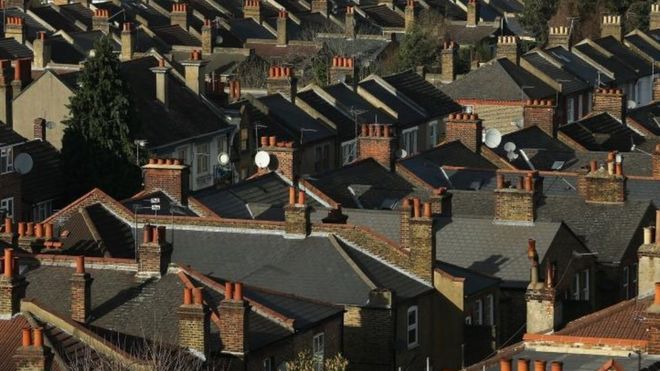
A lack of activity in the UK housing market could make it more difficult for Bank of England policymakers to raise interest rates, surveyors have said.
There has been widespread speculation of a potential increase in the Bank rate in May from its level of 0.5%.
The Royal Institution of Chartered Surveyors (RICS) said property buyer demand had fallen for its 12th consecutive month in March.
This could mean slower household spending as fewer people move home.
Simon Rubinsohn, chief economist at RICS, said that there was little sign of any potential pick-up in buyer demand.
"Apart from the implications this has for the market itself, it also has the potential to impact the wider economy, contributing to a softer trend in household spending," he said.
"This could make Bank of England deliberations around a May hike in interest rates, which is pretty much odds-on at the moment, a little more finely balanced than would otherwise be the case."
- Interest rates: What would a rise mean for you?
- Moving home is 'becoming a rarity'
- How to give your finances a spring clean to save money
- Your biggest financial decision - in 10 charts
Across the UK, 9.2 million households have a mortgage. Of these, about half are on a standard variable rate or a tracker rate, and they would most likely be affected by a rise in the Bank rate.
However, these figures, as well as an unexpected 0.2% fall in UK manufacturing output in February, do mean that the UK economy may not be growing as fast as predicted, making an interest rate rise less inevitable.
Regional differences
Demand for property and house price changes vary considerably across the UK.
London is seeing the sharpest fall in prices, according to surveyors. Respondents in the South East of England, East Anglia and the North East of England also reported prices to be falling, but to a lesser extent than in London. Prices increased elsewhere in the UK in the last three months.
Surveyors predicted that in a year's time, house prices would be higher, particularly in the North West of England, Wales and Scotland.
London remained the only region in which surveyors expected prices to be lower in one year's time.
No comments:
Post a Comment